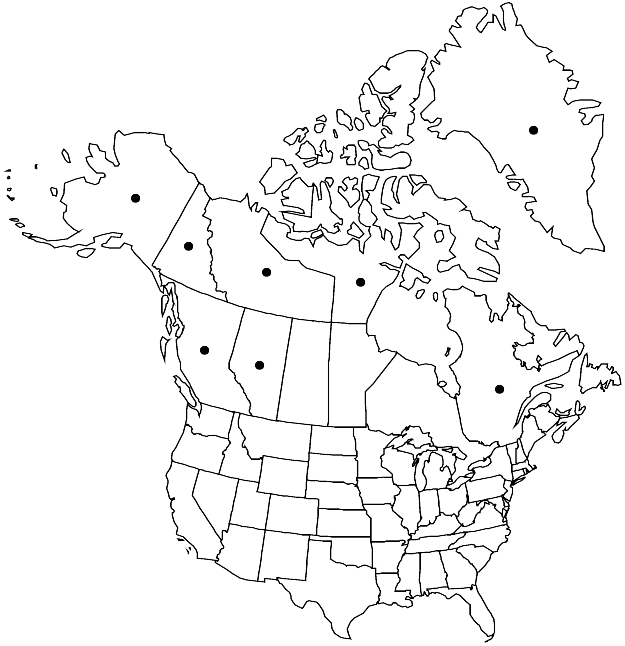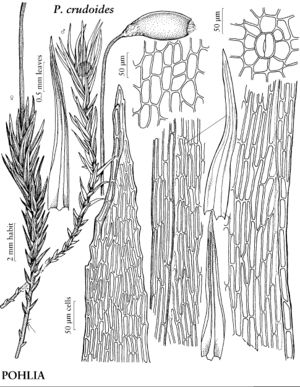Pohlia crudoides
in H. G. A. Engler and K. Prantl, Nat. Pflanzenfam. 218[I,3]: 548. 1903.
Plants medium-sized to large, green, dull. Stems 0.4–2.5 cm. Leaves erect to ± spreading, narrowly long-lanceolate, 1–2.2 mm; margins strongly revolute, serrulate to serrate in distal 1/3; costa subpercurrent; distal medial laminal cells linear-hexagonal, 35–80 µm, walls thin, not porose. Specialized asexual reproduction absent. Sexual condition dioicous; perigonial leaves broadly short-ovate; perichaetial leaves moderately differentiated, narrowly lanceolate. Seta orange-brown. Capsule inclined 30–90°, brown, ovoid-cylindric, neck 1/3 urn length; exothecial cells short- to long-rectangular, walls straight or weakly sinuate; stomata superficial; annulus present; operculum conic; exostome teeth whitish to yellow, bluntly acute, coarsely papillose throughout; endostome whitish to hyaline, basal membrane low, to 1/3 exostome length, segments narrow, scarcely keeled, narrowly or not perforate, cilia absent or rarely rudimentary. Spores 15–25 µm, finely roughened.
Phenology: Capsules mature summer (Jun–Aug).
Habitat: Soil, tundra, on banks and in depressions
Elevation: low to high elevations
Distribution

Greenland, Alta., B.C., N.W.T., Nunavut, Que., Yukon, Alaska, Eurasia.
Discussion
Pohlia crudoides is a distinctive Arctic species characterized by cherry red stems and relatively stiff, dark green leaves with strongly recurved margins. The perichaetial leaves of most Pohlia species have recurved margins, but the only other North American species with strongly recurved vegetative leaf margins is P. cardotii. The latter has shorter, broader leaves with short-rhombic cells often with porose-thickened walls. Pohlia crudoides has weakly tapered exostome teeth coarsely papillose from top to bottom, which give them a whitish appearance under a dissecting microscope; the endostome segments also are papillose.
Selected References
None.
